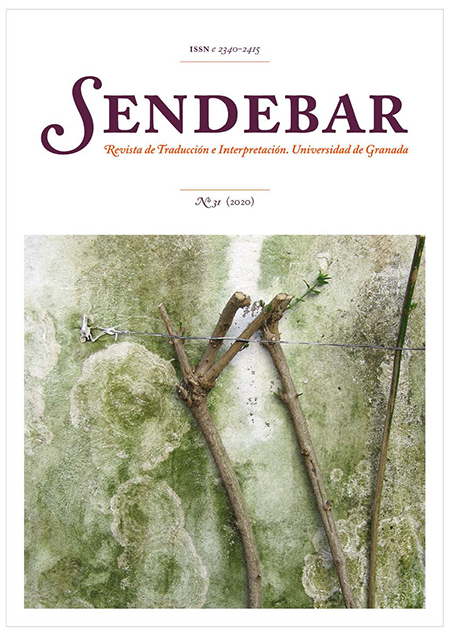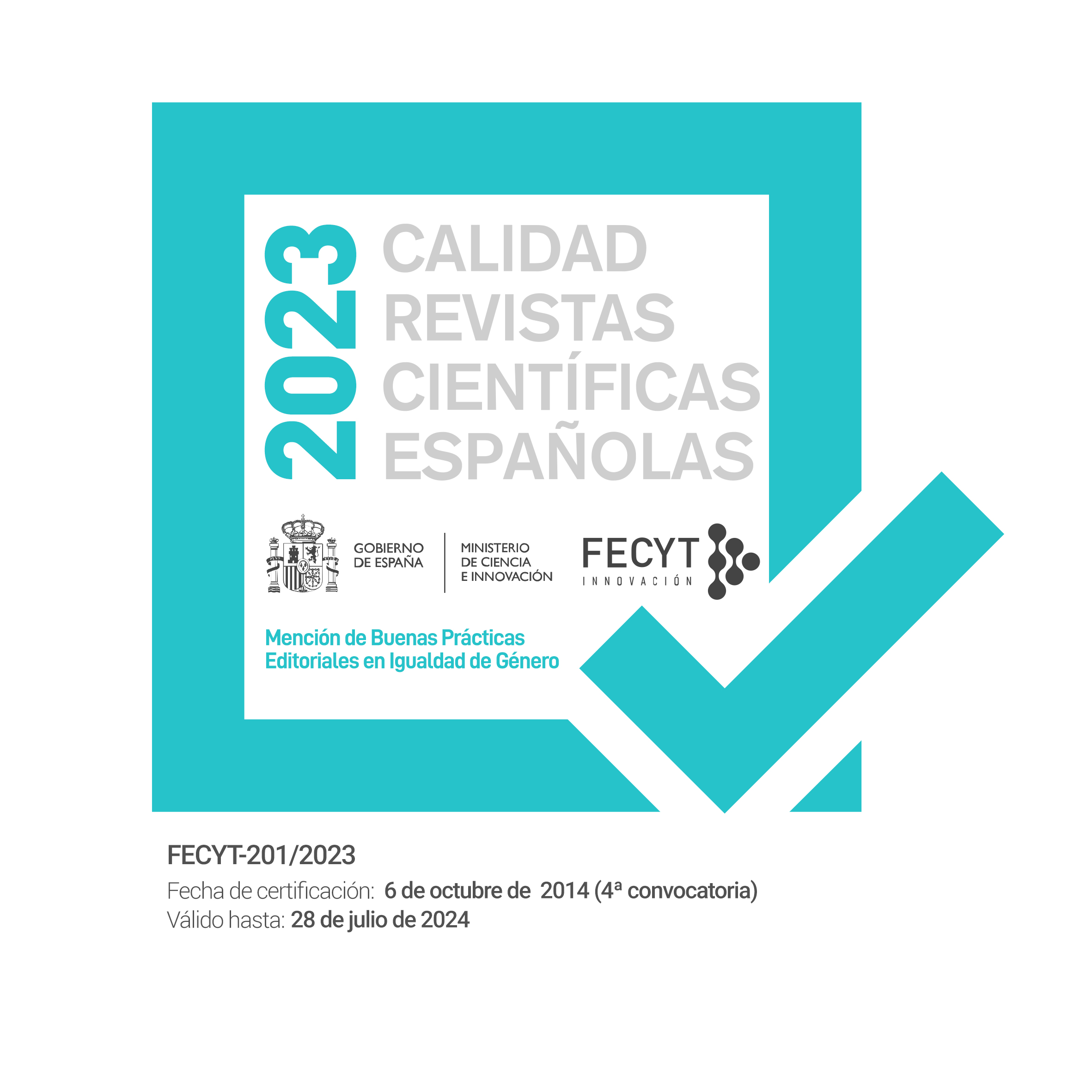Digital Resources for Medical Interpreting Training: A New Role for Trainers?
DOI:
https://doi.org/10.30827/sendebar.v31i0.11525Keywords:
, Medical interpreting, Digital resources, Training, Good practices, AssessmentAbstract
In today’s dynamic world, countries with large immigrant population have to accelerate the curricular reform of the degrees in Translation and Interpreting to ensure that public service interpreting is carried out by qualified professionals. This premise inspired us to start a joint project with the primary aim of creating training materials for public service interpreters—in particular medical interpreters—with active Romanian and Spanish in their combination together with other European languages. As a first step, we (i) studied and compared the state of medical interpreter training in Romania and Spain and (ii) gathered and analysed good practices regarding medical interpreter training. This paper aims to present the characteristics of a relevant corpus of digital resources for medical interpreting training and underline their potential consequences for the trainer’s role. The selection is based on the country of origin and on the usefulness of the content. We classify, describe and analyse the materials systematically and suggest possible improvements.
Downloads
References
American Library Association. (2013). Digital Literacy, Libraries, and Public Policy: Report of the Office for Information Technology Policy’s Digital Literacy Task Force. <http://www.districtdispatch.org/wp-content/uploads/2013/01/2012_OITP_digilitreport_1_22_13.pdf> [Accessed August 19 2019].
Becker, Bernd W. (2018). Information literacy in the digital age: Myths and principles of digital literacy. School of Information Student Research Journal 7(2). <http://scholarworks.sjsu.edu/slissrj/vol7/iss2/2> [Accessed August 19 2019].
Burbules, Nicholas C. (2001). Paradoxes of the Web: The Ethical Dimensions of Credibility. Library Trends 49 (3), Winter 2001, 441-453.
Dabbagh, Nada, Kitsantas, Anastasia (2012). Personal Learning Environments, social media, and self-regulated learning: A natural formula for connecting formal and informal learning. Internet and Higher Education 15, 3-8. <http://digtechitalia.pbworks.com/w/file/fetch/88358207/Dabbagh%202012.pdf> [Accessed August 19 2019].
El Mhouti, Abderrahim, Nasseh, Azeddine, Erradi, Mohamed (2013). Development of a Tool for Quality Assessment of Digital Learning Resources, International Journal of Computer Applications (0975 – 8887), Volume 64– No.14, 27-31. <http://citeseerx.ist.psu.edu/viewdoc/download?doi=10.1.1.278.5199&rep=rep1&type=pdf> [Accessed August 19 2019].
Eshet-Alkalai, Yoram (2004). Digital literacy: A conceptual framework for survival skills in the digital era. Journal of Educational Multimedia and Hypermedia 13, 93-106.
Fogg, BJ & Tseng, Hsiang (1999). The Elements of Computer Credibility. In Proceedings of the SIGCHI Conference on Human factors in Computing Systems: the CHI is the Limit, May 15-20, 1999, Pittsburgh, Pennsylvania, USA, New York, NY: ACM, 80-87. <http://credibility.stanford.edu/pdf/p80-fogg.pdf> [Accessed August 19 2019].
Gonzalo García, Rosario Consuelo (2004). Fuentes de información en línea para la traducción especializada, in Gonzalo García, R. C. & García Yebra, V. (eds), Manual de documentación y terminología para la traducción especializada, Madrid: Arco Libros, 275-307.
Grand-Clement, Sarah, Devaux, Axelle, Belanger, Julie &Manville, Catriona (2017). Digital learning: Education and skills in the digital age. RAND Corporation and Corsham Institute. <https://www.rand.org/content/dam/rand/pubs/conf_proceedings/CF300/CF369/RAND_CF369.pdf> [Accessed August 19 2019].
Hague, Cassie & Payton, Sarah (2010). Digital Literacy Across the Curriculum, Bristol: Futurelab. <https://www.nfer.ac.uk/publications/FUTL06/FUTL06.pdf> [Accessed August 19 2019].
Hurtado Albir, Amparo (2017). Researching Translation Competence by PACTE Group. Amsterdam/Philadelphia: John Benjamins Publishing Company.
Jones, Rodney H. & Hafner, Christoph A. (2012). Understanding digital literacies: A practical introduction. London, UK: Routledge.
Metzger, Miriam J. (2005). Understanding how Internet users make sense of credibility: a review of the state of our knowledge and recommendations for theory, policy, and practice, in Symposium on Internet Credibility and the User (pp. 1-32). Seattle, WA: American Library Association’s Office for Information Technology Policy. <http://citeseerx.ist.psu.edu/viewdoc/download?doi=10.1.1.126.1185&rep=rep1&type=pdf> [Accessed August 19 2019].
Ng Wan (2012). Can we teach digital natives digital literacy?. Computers & Education59 (3), 1065-1078.
Ortlieb, Evan, Cheek, Earl H. & Semingson, Peggy (eds.) (2018). Best Practices in Teaching Digital Literacies. Bingley (UK): Emerald Publishing.
Pool, Carolyn R. (1997). A New Digital Literacy: A Conversation with Paul Gilster. Educational Leadership 55(3), 6-11. <https://www.learntechlib.org/p/83481/> [Accessed August 19 2019].
Recker, Mimi M., Dorward, James & Miller Nelson, Laurie (2004). Discovery and Use of Online Training Resources: Case Study Findings. Educational Technology & Society 7 (2), 93-104.
Shah, Asad Ali, Ravana, Sri Devi, Hamid, Suraya & Maizatul Akmar, Ismail (2015). Web credibility assessment: affecting factors and assessment techniques. Information Research 20(1). [Accessed August 19 2019].
Summey, Dustin C. (2013). Developing Digital Literacies: A Framework for Professional Learning. Thousand Oaks, California: Corwin.
Swaim, Marty Shollenberger & Swaim, Stephen C. (1999). Teacher time (or rather, the lack of it). American Educator 23 (3), 20-26.
Downloads
Published
How to Cite
Issue
Section
License
Terminos de Licencia Sendebar.

















